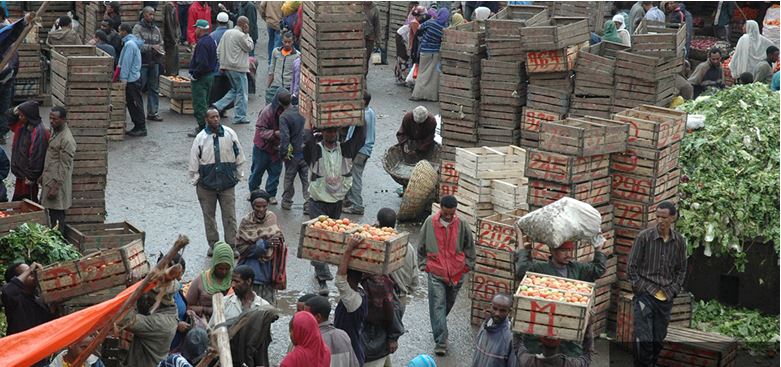By Charles Dhewa
1. More than 90 percent of development agencies working in Africa are headquartered in the Global North where high populations and income levels make Northern countries a potentially reliable market for agricultural commodities from Africa. If they were sincere in alleviating poverty among African smallholder farmers, development agencies working in the agriculture sector would have easily opened markets for surplus smallholder commodities in Northern countries.
By now commodities from African smallholder farmers would be flowing to German, UK, France, Canada, USA, Sweden, Switzerland, Holland, Italy, Finland, Denmark and many other countries whose development agencies have been working in Africa for decades. That would be a more sustainable solution as it would stimulate market-driven agriculture unlike pouring money into production when the domestic market is too small to absorb surplus agricultural commodities.
2. Assuming moving commodities from African smallholders to the Global North is difficult, what about supporting regional trade in Africa? Development agencies from the North have a presence in almost all African countries. What prevents them from working with their peers using their branch network to support regional trade in agricultural commodities which they assist in producing? It is obvious development agencies have more power than farmer organizations and smallholder farmers. With enough commitment and passion for change, they can easily influence regional trade between smallholder farmers.
3. Assuming supporting regional trade is also too complex for development agencies, what about building strong food distribution systems for smallholder farmers at national level? Instead of competing to support production of the same commodities in the same communities or production zones, causing gluts in local markets, what stops development agencies from completing the supply chain by setting up aggregation centers, facilitating food preservation and the movement of commodities from glut to shortage communities instead of letting communities depend on imports? These agencies would also bring appropriate value addition technologies.
The myths of market linkages
All market linkages interventions by most development agencies have not assisted smallholder farmers to earn better incomes and climb out of poverty. Millions of United States dollars have been squandered in the name of market linkages which has basically been about recycling tired value chain models, workshops to talk about markets and hiring expensive consultants with no clue about the market challenges and needs of marginalized vulnerable smallholder farmers. In Zimbabwe, one of the programs that purported to improve the livelihoods of smallholder farmers with an embedded market linkages program is ending in May 2021 after more than five years. Smallholder farmers are still struggling to sell their commodities in the districts where the program was operating. The farmers are still losing money to middlemen some of whom were set up by the program.
Time to decolonize regional trade
Unless African countries decolonize national and regional trading of agricultural commodities, smallholder farmers will live in poverty forever. The current colonial trading systems favor big companies at the expense of smallholder farmers. For example, national marketing boards aggregate commodities like maize from poor smallholder farmers for milling companies which produce and sell maize meal to poor urban households, with a 10kg bag of maize meal going for three times the value of a bucket of maize bought from smallholder farmers.
As currently framed and practiced, the notion of exporting does not directly favor smallholder farmers. When trade promotion bodies like ZIMTRADE talk about exports, they are thinking about niche commodities like blue berries, macadamia nuts, sugar snap and others not produced by smallholder farmers. There is also excessive attention on non-food commodities like cotton and tobacco but less focus on smallholder horticulture in which the majority of smallholders participate. Yet there is no doubt that domestic horticulture plays a superior role in agribusiness, employment creation and income generation than tobacco, cotton, maize or wheat. Poor households earn money from growing vegetables and selling locally to meet critical immediate survival needs.
Decolonizing trade means developing trading models that directly benefit smallholder producers and local communities. Given the looming bumper harvest in Southern Africa, what are policy makers thinking about promoting regional trade of more than 50 agricultural commodities that form the food basket across Africa? Due to the disruption caused by COVID19 on food systems, some countries will be more affected than others. If cabbages have to move from Zimbabwe to DRC why should the consignment be subjected to imported scientific processes as if where cabbages are coming from people do not consume cabbages?
Currently, regional export processes are still too colonial and rigid. An important part of decolonizing regional trade should see African countries and trade promotion bodies setting up special corridors for agricultural commodities. Trucks or railway wagons carrying food should not be in the same queue as trucks carrying copper. Groundnuts should just move from Zambia to Tanzania hassle-free the way trading happened pre-colonial when countries were not divided by artificial borders.






